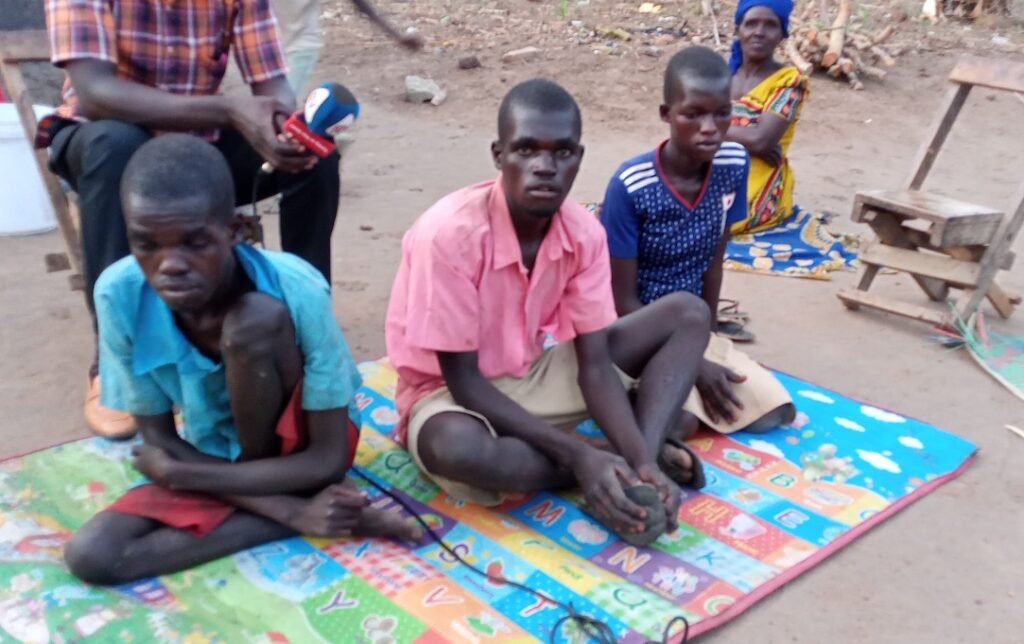By Lominda Afedraru
Uganda scientists tackle Nodding Syndrome with ready-made recipes
The influx of refugees put additional strain on local resources. A United Nations Children’s Fund (UNICEF) report puts stunting and wasting in children at 22.3 percent and 5.0 percent and 30.6 percent and 3.9 percent in Lango and Acholi subregions respectively.
In the camps where people displaced by conflict lived, Nodding Syndrome emerged.
Nodding Syndrome is a neurological condition characterised by repeated head-nodding seizures that appear in previously healthy children aged between 3- 18 years.
Scientists from the National Agricultural Research Organsiation (Naro) came up with a programme to try solve this health challenge under the Development Initiative for Northern Uganda (DINU) ‘Chase Hunger project’.
The scientists are collaborating with their colleagues from Lira University in Lango sub-region, Muni University in West Nile and the non-governmental organisation Palm Corps to improve household diets for children by promoting the growing of the various crops, rearing poultry and keeping dairy cattle.
A 2012 World Health Organisation (WHO) International meeting on Nodding Syndrome in Kampala, Uganda, recommended that fungal contamination of foods should be investigated as a possible cause of the disease but to date scientists do not know the cause of the disease.
In Uganda, it has affected children mainly in Acholi and Lango and scientists think providing dietary nutritious assorted foods can help solve the problem.
Dr Bernard Omech from Lira University School of Public Health says that the DINU project seeks to help families faced with the challenge of stunted growth of children and those affected by Nodding Syndrome.
“Under this project we are working with various partners to ensure there is increased diversified food provision in most families in Northern Uganda who are faced with the challenge of children suffering from Nodding Syndrome.
We are already carrying out research on production of food supplements produced from assorted food items that can be given to these children to boost their immunity,” he says.
The required initiatives
He says that the affected communities are consuming less than three types of food on daily basis instead of five deemed to amount to the right nutrition.
This means consuming balanced diet from the locally available foods — beans, vegetables, beef, chicken, milk, cassava, sweetpotatoes as well as sauce prepared using sim sim and groundnut peanut among others.
Dr Omech’s team is already testing a food supplement prepared from various foods at the National Agriculture Research Laboratories in Kawanda. This, he says, includes porridge made from a mix of soy bean flour and millet flour among others.
The scientists are also recommending ready-made food recipes from silver fish, pumpkin, milk, orange fleshed sweet potatoes and millet flour which are nutritious and once given to the affected children will be able to boost their immunity.
Dr Omech and his colleagues are also working with 66 families whose children are affected with the Nodding Syndrome in Pajimu, Aromo and Acholibu villages where about 3,000 children are affected. The children’s mothers are being sensitised to prepare nutritious recipes for their children from simple foods from assorted vegetables namely Malakwang (Hibiscus leaves), cabbages, cow pea leaves and millet porridge, which is rich in iron.
The team is also partnering with schools to encourage children to grow orange fleshed sweet potatoes, vegetables of various types and iron-rich beans and rear chicken for protein, which the school management must ensure are part of their diet.
Parents are also encouraged to set up home gardens to ensure these foods are grown and provided to the children on daily basis as part of the diet. The project is also partnering with health centres to ensure they have deliberate programmes to help families deal with malnutrition and Nodding Syndrome cases.
Sofia Okidi from Lokodamu village in Lira district narrates how her son was born a normal baby in 1999 and became sick at the age of 6. The child would feel dizzy all the time and he eventually began losing appetite and weight.
A team from Gulu referral hospital conducting a medical camp at the local health centre later told them the child was suffering from Nodding Syndrome. Parents like Sofia are faced with the challenge of always being attentive and keeping around them because they may end up setting the homestead ablaze since their mental status is not stable.
The children who are now stunted have limited appetite and are selective on the type of food to consume which is a challenge to the parents already grappling with poverty

